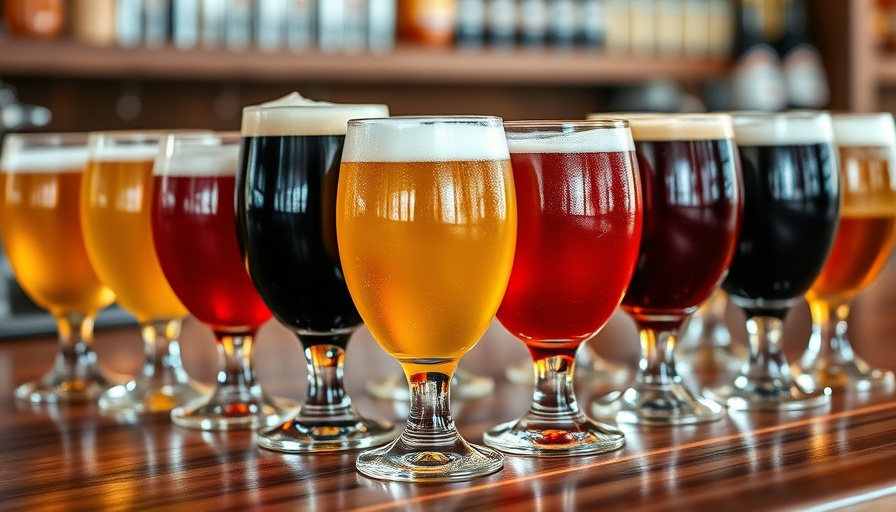
PFAS in Beer: Understanding the Latest Findings
In a surprising twist for beer lovers, a recent study has revealed that per- and polyfluoroalkyl substances (PFAS), commonly referred to as "forever chemicals," have been detected in 95% of beers tested across the United States. This revelation comes from a research study conducted by RTI International, highlighting serious implications for both public health and environmental safety.
The PFAS Dilemma in Brewing
Traditionally, beer has been revered not just as a popular beverage, but also as safer than water in ages past when the brewing process destroyed pathogenic bacteria. However, the basic filtration processes utilized by breweries are inadequate for removing these persistent chemicals from water. "While breweries focus on tailoring water for flavor and quality," said lead author Jennifer Hoponick Redmon, "these systems often fail to filter out contaminants like PFAS that have permeated our water systems." .
What Are PFAS and Why Are They a Concern?
PFAS are a group of over 4,700 synthetic chemicals known for their durability and resistance to environmental degradation. The term "forever chemicals" arises from their indestructible nature, leading to their accumulation in the environment and the human body. Health concerns associated with PFAS exposure range from reproductive issues and immune system changes to higher cancer risks. What's alarming is their pervasive presence not only in drinking water but now revealed in beverages many consume casually like beer.
Regional Implications: Notable Findings from North Carolina
The study found particularly high levels of PFAS in beers brewed near the Cape Fear River Basin in North Carolina, an area notorious for PFAS pollution. This region's drastic pollution levels have sparked concern among residents and health activists alike, as not all brewers may be aware of the water quality and its effects on the final product. The presence of specific PFAS compounds, such as perfluorooctanoic acid (PFOA) and perfluorooctanesulfonate (PFOS), were notably higher in these local brews compared to those made from uncontaminated water sources.
Understanding the Link Between Water Quality and Beers
As PFAS contamination in drinking water grows more prevalent, the brewing industry's reliance on local water sources poses risks to public health. The study's findings correlate brewing water's PFAS levels with the concentration found in the final product. Therefore, breweries need to adopt better filtration methods to safeguard consumers from these contaminants. This situation raises crucial questions about consumer awareness and transparency in the beverage industry.
What Can Beer Drinkers Do?
For health-conscious adults, this news might feel concerning; however, knowledge is power. Beer drinkers should stay informed about the brands they support and consider advocating for better water treatment options in their local areas. Choosing craft breweries that explicitly state their filtration practices can be one small step toward a healthier lifestyle and more sustainable brewing practices. Meanwhile, public pressure can urge large corporations to prioritize water safety and transparency.
Towards Healthier Brewing Practices
The findings from this study not only draw attention to potential health risks associated with common beverages, but they also emphasize the need for change. Advocating for stricter regulations on PFAS and better filtration processes are steps toward ensuring that what we pour into our glasses is safe. The hope lies in inspiring policy changes and treatment strategies that mitigate PFAS in municipal water systems, which could lead to healthier beers and safer communities.
In Conclusion: Raising Awareness is Key
As savvy beer drinkers, understanding the implications of PFAS in our beverages is essential for making informed choices. We can improve our health and well-being by advocating for safer practices in brewing and demanding transparency from our favorite breweries. The more we know, the more we can do to support sustainability in the industry.
So next time you enjoy that cold pint, consider questioning the source. After all, our health deserves better, and knowing what’s in our drinks is just the start!
 Add Row
Add Row  Add
Add 




Write A Comment